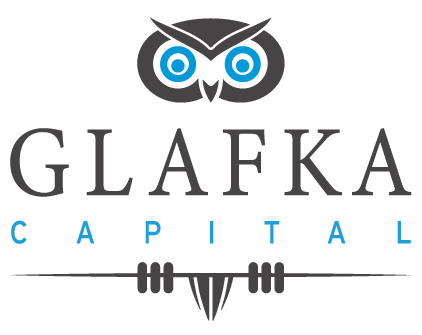Οι επενδυτές εµπιστεύονται και πάλι την Ελλάδα
Πρώτο Θέμα , Business stories σελ.16 05/01/2020
Νέες εισαγωγές εταιρειών και αυξήσεις κεφαλαίου θα αυξήσουν τις συναλλαγές στο Χρηµατιστήριο της Αθήνας, όπως εκτιµά ο κ.Πέτρος Μυλωνάς, managing partner της Glafka Capital. Συγκεκριµένα, αναφέρει: «Το νέο έτος ξεκινά µε σηµαντικά βελτιωµένη επενδυτική διάθεση και αισιοδοξία για την πορεία της χώρας τόσο από Ελληνες όσο και από ξένους επενδυτές. Η επίτευξη δηµοσιονοµικής χαλάρωσης από τον αντικειµενικά µη επιτεύξιµο στόχο του 3,5% πρωτογενούς πλεονάσµατος ως το 2022 θα παραµείνει ο βασικός άξονας για την επιστροφή της επενδυτικής εµπιστοσύνης.Ταυτόχρονα η επιτάχυνση σηµαντικότατων έργων όπως η ανάπτυξη του Ελληνικού θα αποτελέσει το καλύτερο επικοινωνιακό όπλο της κυβέρνησης.
Πιστεύουµε ότι η χρονιά που µόλις ξεκινά θα είναι τελείως διαφορετική τόσο για το Χρηµατιστήριο Αθηνών όσο και για τις υπόλοιπες επενδύσεις στη χώρα. Το πρώτο αναµένεται να χαρακτηριστεί από αυξηµένη κινητικότητα σε νέες εισαγωγές εταιρειών,αυξήσεις µετοχικών κεφαλαίων και ιδιωτικές τοποθετήσεις που θα είναι η κινητήριος δύναµη για σηµαντική αύξηση των συναλλαγών. Το ενδιαφέρον των ξένων θεσµικών χαρτοφυλακίων είναι ισχυρότατο για συναλλαγές που µπορεί να δώσουν τη δυνατότητα στο να δηµιουργήσουν µια ικανοποιητική θέση, κάτι που λόγω της χαµηλής συναλλακτικής δραστηριότητας δεν είναι δυνατό στη συντριπτική πλειονότητα των µετοχών.
Ταυτόχρονα, η εξυγίανση του δανειακού χαρτοφυλακίου των τραπεζών, µε τη σηµαντικότατη συνέργεια των 30δισ. ευρώ τιτλοποιήσεων του σχεδίου “Ηρακλής”,είναι και το προαπαιτούµενο για τη σοβαρή ανάκαµψη της χρηµατιστηριακής αγοράς αλλά και την προσέλκυση νέων επενδύσεων. Το ενδιαφέρον όµως των ξένων θεσµικών επενδυτών, το οποίο ξεκίνησε δειλά µε επενδύσεις σε ελληνικά οµόλογα και εµπορικά ακίνητα,βλέπουµε πλέον να επεκτείνεται για πρώτη φορά από την αρχή της κρίσης και σε νέες επενδύσεις (greenfield developments) καθώς ποντάρουν στην αποφασιστικότητα της κυβέρνησης να συντρέξει στην επιτάχυνση της δαιδαλώδους γραφειοκρατικής διαδικασίας. Κλάδοι όπως η ενέργεια, ο τουρισµός αλλά και για πρώτη φορά οι παραγωγικές εγκαταστάσεις συγκεντρώνουν το ενδιαφέρον. Παράλληλα, η εξαγορά δανειακών χαρτοφυλακίων που µπορεί να δώσει τον έλεγχο σε εταιρείες που έχουν ακόµη δυνατότητες επιχειρηµατικής αναδιάρθρωσης προσελκύει πλέον µεγαλύτερο ενδιαφέρον από ποτέ, µια και οι επενδυτές θεωρούν ότι οι συνθήκες είναι πλέον ώριµες για τις τέσσερις συστηµικές τράπεζες να προχωρήσουν στην πώληση και ρύθµισή τους.
Τέλος, θεωρούµε ότι οι σηµαντικότατες εξελίξεις που βλέπουµε σε παγκόσµιο επίπεδο στον χώρο της τεχνολογίας και οι οποίες επηρεάζουν µε ταχύ ρυθµό τους περισσότερους κλάδους της οικονοµίας θα είναι και µια πρωτόγνωρη αλλά και αναπόφευκτη ριζική αλλαγή στην οικονοµία της Ελλάδας. Οι αλλαγές θα ξεκινήσουν φέτος αλλά θα ενταθούν τη νέα δεκαετία και αφορούν
καινοτόµες εφαρµογές blockchain αλλά και τα security token offerings. Αυτές αναµένονται να φτάσουν σε αξία τα 10 τρισ. δολάρια παγκοσµίως τα επόµενα πέντε χρόνια, γεγονός που θα αλλάξει ριζικά αρχικά τον χρηµατοοικονοµικό χώρο και στη συνέχεια πολλούς ακόµη τοµείς της ελληνικής οικονοµίας».
